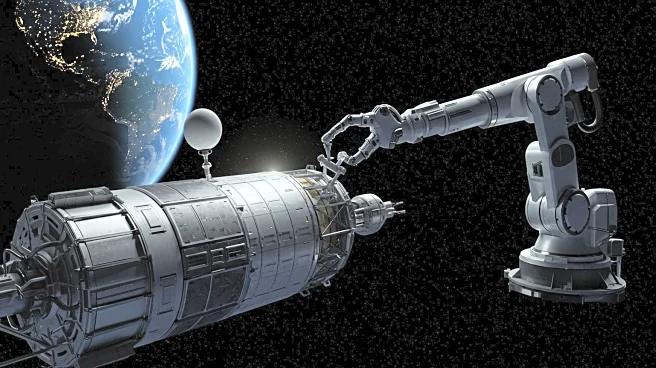What's Happening?
NASA astronauts aboard the International Space Station (ISS) are engaged in a variety of scientific research and maintenance activities as part of Expedition 73. The crew, consisting of members from NASA, JAXA, and Roscosmos, is conducting experiments related to human health and space exploration. These include ultrasound scans to monitor blood clots, cardiovascular and respiratory fitness assessments, and eye structure investigations. Additionally, the crew is preparing for future spacewalks by maintaining extravehicular mobility units and upgrading the Cold Atom Lab for advanced atomic observations. The astronauts are also preparing for the upcoming SpaceX CRS-33 resupply mission, scheduled for August 24, by inspecting cargo areas and assembling necessary tools.
Why It's Important?
The ongoing research and maintenance activities on the ISS are crucial for advancing human space exploration and understanding the effects of long-duration space travel on human health. The experiments conducted by the crew contribute to the development of protocols for future missions to the Moon and Mars, enhancing the safety and efficiency of space travel. The maintenance of the ISS ensures the continued operation of this vital research platform, which has been continuously crewed for nearly 25 years. The collaboration between international space agencies highlights the importance of global partnerships in achieving scientific and exploratory goals.
What's Next?
The crew will continue their research and maintenance activities, with periodic ultrasound scans to monitor their health throughout their stay. Preparations for the SpaceX CRS-33 resupply mission will continue, ensuring the ISS is ready to receive new supplies and equipment. Future spacewalks are planned, requiring ongoing maintenance of spacesuits and other equipment. The results of the current experiments will be analyzed to inform future space missions and improve protocols for human health in space.
Beyond the Headlines
The research conducted on the ISS has broader implications for medical science on Earth, particularly in understanding blood clot formation and eye health. The Cold Atom Lab's experiments could lead to breakthroughs in quantum physics, with potential applications in computing and communications. The international collaboration on the ISS serves as a model for peaceful cooperation in space exploration, fostering diplomatic relations and shared scientific advancements.











